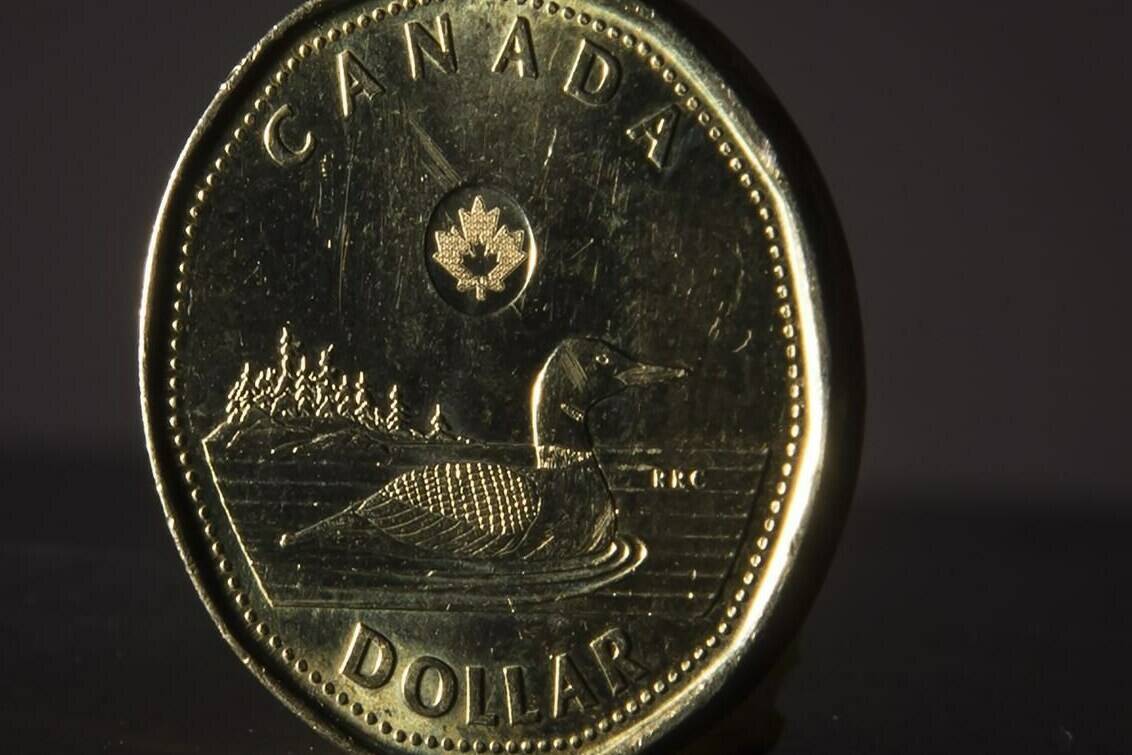The Bank of Canada’s largest interest rate hike in 24 years caused the loonie to drop to a 20-month low as investors feared the U.S. Federal Reserve would mirror the full percentage point hike in two weeks.
The Canadian dollar dropped to a low of 75.62 cents US in early trading, its lowest level since Nov. 4, 2020 and nearly one-a-half-cent drop from 77.07 cents US on Wednesday.
Erik Bregar, director FX and precious metals risk management at Silver Gold Bull Inc., said the odds of the Fed increasing rates by one percentage point increased to 90 per cent after the Bank of Canada added an extra 25 basis points to the forecasts of a three-quarters of a percentage point increase.
“And so that just kind of put a flame under the (U.S.) dollar broadly, knocked commodities lower, knocked the S&P lower and I think it frankly just caught everybody off-guard,” he said in an interview.
Bregar said the loonie is at a “critical juncture” — it can rally from the lows or fall even further because there’s not a lot technically to stop a bigger decline.
“We’re kind of dangling off a little cliff here. The market kind of needs to show us can it recover? If not then we’re probably going a lot lower.”
The currency partially recovered Thursday to 76.12 cents US in afternoon trading after Fed governor Christopher Waller said the market was “kind of getting ahead of itself.”
He said he’s waiting for U.S. housing and retail sales data before deciding whether to support an increase above the expected three-quarters of a percentage point.
The U.S. dollar, which has been flying high amid the threat of a recession, gained further ground against most major currencies primarily due to short-term yields rising following a report Wednesday that the annual inflation rate in the U.S. hit 9.1 per cent in June, the highest in more than 40 years.
“The U.S. dollar remains so strong that no currency defies its strength,” said Ipek Ozkardeskaya of Swissquote Bank SA.
Scotiabank chief currency strategist Shaun Osborne said “risk aversion” was dragging the Canadian dollar lower after the Bank of Canada’s bold move.
“Weaker crude may be weighing on Canadian dollar sentiment at the margin but that would be harsh, given that stronger crude has barely helped the Canadian dollar in the past few months,” he wrote in a report.
Concerns about the loonie’s direction might be focused on the central bank’s soft-landing outlook as it jacks up rates, but that doesn’t explain Thursday’s big move since there are similar worries about the U.S. Federal Reserve’s soft-landing scenario, he said.
The Canadian dollar’s early weakness was accompanied by the August crude oil contract falling to a low of US$90.56, its lowest level since February. It subsequently increased to US$95.78.
RELATED: Bank of Canada hikes key interest rate by full percentage point
RELATED: Canadian household budgets stretched thin as inflation, interest rates rise: Survey

